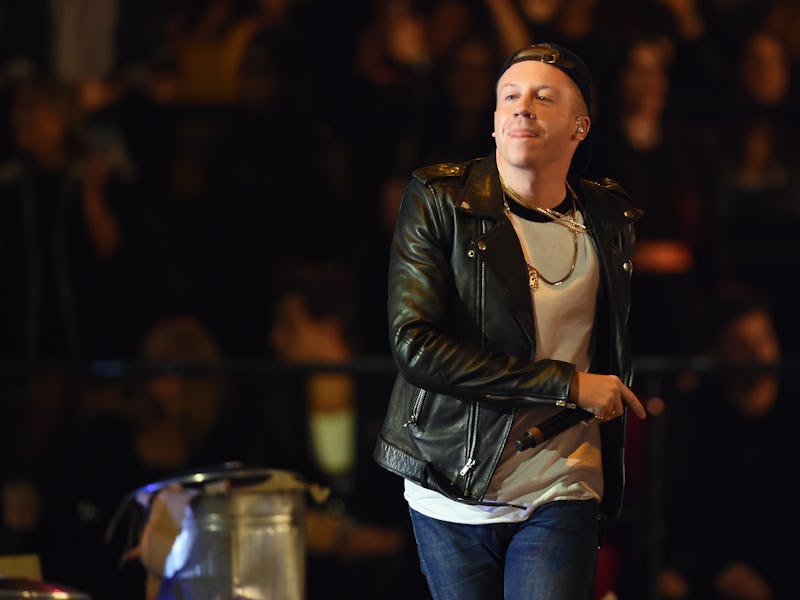"White Privilege II" Means Well but Makes Macklemore Look Like a Dummy
The rapper discusses his own white privilege too much without really touching on the wider scope of the issue.

Today, Macklemore released the song — if you can even call it that — “White Privilege II.” It finds the Seattle-born rapper mulling over the implications of the privileges he exercises by being a white dude in the rap industry. While his intentions behind “White Privilege II,” are ostensibly good, the rapper once again makes himself look like a falsely enlightened doofus.
When I say Macklemore is well-intentioned, it’s because I sincerely don’t think “White Privilege II” is a ploy to make money by staying relevant. As a white man with considerable reach in the the music industry, he has the ability to affect change through his music — most pop stars have this power. If you have the influence to spark critical conversations about exigent social matters, by all means, you should do something to get the tides moving in the right direction. “White Privilege II” is a follow-up to the 2005 single “White Privilege” on his solo album The Language of My World, so he’s clearly been chewing on this issue for a decade. The subject matter of “White Privilege II” is not problematic, but the way Macklemore discusses his personal relationship with it is.
On the new song from his upcoming This Unruly Mess I’ve Made, Macklemore sits us down Mr. Rogers-style to teach us all a very very important lesson about white privilege. Throughout the duration of the nearly nine-minute track, Macklemore emphatically raps on about his own experience with white privilege. He touches on how backwards it is that certain white public figures only address their white privilege or stand in solidarity with movements like #BlackLivesMatter when it’s convenient or makes them appear saintly.
At one point, he raps from the point of view of a white mother who supports her kids listening to his music because “it’s positive” and “all that negative stuff isn’t cool, like the guns and the drugs, the bitches and the hoes the gangs and the thugs.” He also spits tired, quasi-philosophical lines like “Am I on the outside looking in, or am I on the inside looking out?” Most of what Macklemore makes a point to say in “White Privilege II”, though, deals with him reconciling his own experience with the issue, rather than addressing the wider scope of the problem. It’s as if he expects to be absolved of his past career stunts by acknowledging that he knows what people say about him. There’s much more here to address than the slander that applies to his own career, but this is the focus of Macklemore’s song.
Macklemore performing in Downtown L.A. for the 2015 VMA's
The reaction this elicits is something along the lines of, “Oh you poor thing, how do you get through each day bearing this burden of reconciling your white privilege?” I think it’s important to reiterate that Macklemore’s intentions are transparent and positive, that he is using his music as a vehicle to respond to pressing social matters. That’s admirable. But who is this song for? Is it for people in this country who don’t understand their privilege as a white person? Is it proof to his haters that he knows what’s up? Is it for his own good, so he can be exonerated since he acknowledged what the progressive public says about him? It’s hard to say, but maybe Charlotte Rampling — who earlier today said that #OscarsSoWhite is “racist against whites” — should have a listen.